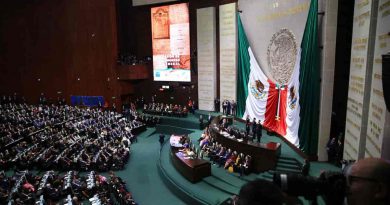Escalating violence in the Central African Republic
By Mia Page
Staff Writer
Stephen O’Brien, Under-Secretary-General for Humanitarian Affairs and Emergency Relief Coordinator of the United Nations, recently briefed the U.N. Security Council on the Central African Republic’s ongoing humanitarian crisis, reports Newsweek.
On Tuesday, September 5, O’Brien urged the Security Council to provide support for the CAR’s failing government. According to Newsweek, O’Brien said he believes “There’s a very deep ethnic-cleansing approach” to the acts committed by local militias.
The Central African Republic, known for its many rebellions and conflicts, saw a rise in religious tensions after the forced removal of President François Bozize in 2013 reports The Guardian.
Bozize won the position by way of an aggressive military coup and was in office from 2003-2013. He ruled the Central African Republic relatively peacefully until 2013 when the Muslim majority extremist group Seleka began to threaten Bozize’s rule.
The Seleka were a rebel alliance that formed in December of 2013 with the intention of establishing a Muslim government in the Central African Republic. The newly formed Seleska intended to start their revolution with the replacement of the Christian Bozize, according to Global Voices. The new rebel alliance crafted a short-lived peace agreement in January of the same year, only to break it two months later executing a coup and causing Bozize to flee.
On the surface, tension in the country seemed to wane following the coup by the Seleka, but in reality a radical Christian militia was formed in order to combat the new regime. Newsweek reports that the Anti-Balaka, or the Anti-Machete, began to have skirmishes with the Muslim led Seleka group soon after the coup. The skirmishes evolved into atrocities committed with the intention of a religious cleansing. After the Selka’s dissolution in 2014, former members created small factions known as the ex-Selka.
Global Voices reports that on August 9, over 50 Christians were killed by the Ex-Seleka group in Bangassou. Possibly in retaliation, the Anti-Balaka trapped 2,000 Muslims in a Catholic church in the town of Bangassou and threatened to execute anyone who walked outside.
The U.N. Security Council sent French military forces to the CAR in 2013 to protect civilians and aid in the transition process after Seleka’s coup. U.N. forces successfully formed a peace agreement between warring groups in the CAR, but the agreement quickly fell apart in 2016 after the departure of the French army. U.N. forces left the CAR after rising anti-U.N. sentiment led to the assassination of one of their military commanders at the hands of the Ex-Seleka, reports Jeune Afrique.
The escalation of the conflict in CAR brings back the memories of the Rwandan Genocide which saw at least 800,000 people killed in 100 days in the name of ethnic cleansing. Lack of international intervention led to the severity of the Rwandan genocide in 1994, and many in the U.N., including O’Brien, fear another similar case.
Global Voice believes that the lack of support from the international community in the Central African Republic will directly lead to Africa’s next genocide the likes of which haven’t been seen since Rwanda. There no sign of the African Union stepping in to stop the religious purges, and the surrounding nations can’t offer much more than a home for civilian refugees.
Other countries remain preoccupied with the already overwhelming amount religious extremism in places like Yemen and Afghanistan, reports CNN. With no response from the African Union or surrounding nations, the Central African Republic’s main source of external support is now the United Nation’s Security Council.
CAR’s internal conflicts do not appear to be a priority due to the lack of a threat on the western world.
However, without international intervention, the Central African Republic with most likely fall into further chaos bringing about a religious genocide.

